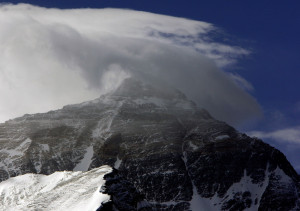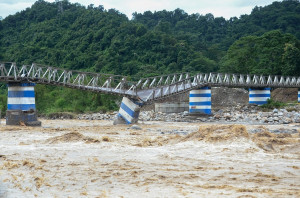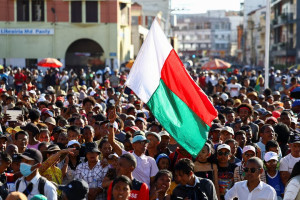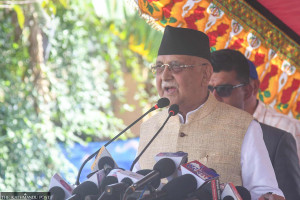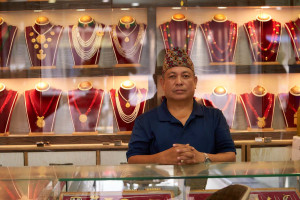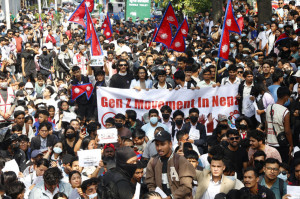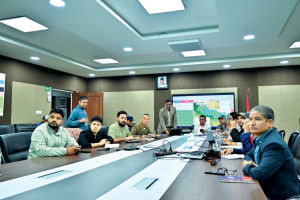World
Twenty Nepali startups take part in Startup Mahakumbh in India
The Startup Mahakumbh in its second edition has evolved to be the world’s largest startup event and features over 3,000 exhibitors, 10,000 startups, and 1,000 investors, incubators, and accelerators from across India and beyond.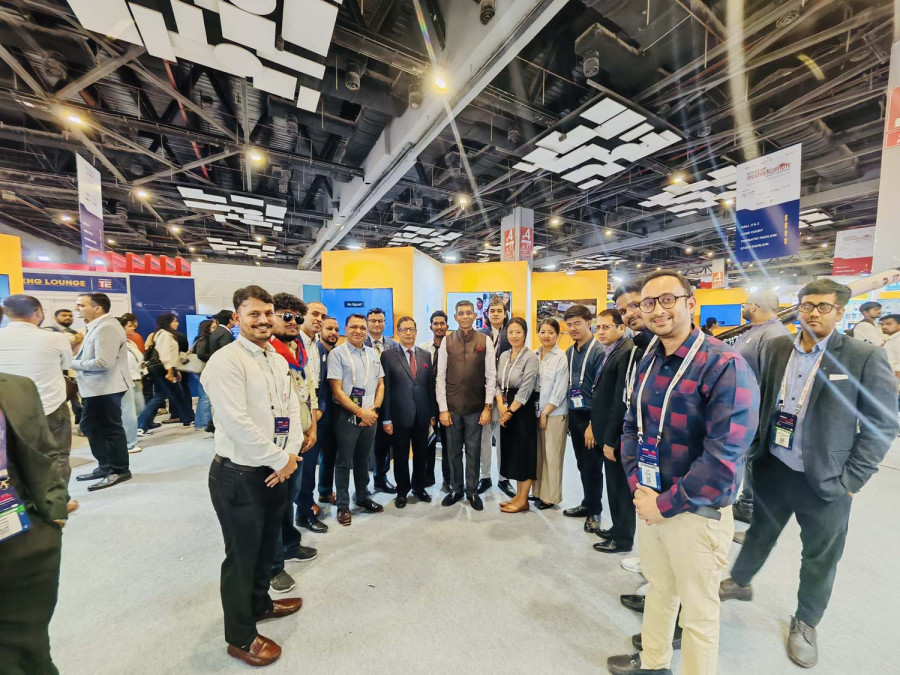
Post Report
Nepali Ambassador to India Shankar Sharma and Additional Secretary (North) from the Ministry of External Affairs of India Munu Mahawar jointly inaugurated the Nepal pavilion at Startup Mahakumbh 2025 in New Delhi.
As many as 20 Nepali startups from sectors ranging from space science, information technology and artificial intelligence to climate tech, edtech and agro-processing are showcasing their products at the Nepal pavilion established with the support of the Indian government’s Department of Promotion of Internal Trade and Industry, according to the Indian Embassy in Kathmandu.
Among 20, ten young startup founders were supported by the Embassy of India in Kathmandu to attend the event.
“The three-day event provides an opportunity for Nepali startups to connect with the Indian startup ecosystem,” the embassy said. “The Startup Mahakumbh in its second edition has evolved to be the world’s largest startup event and features over 3,000 exhibitors, 10,000 startups, and 1,000 investors, incubators, and accelerators from across India and beyond.”
Earlier, in February, the embassy of India in Kathmandu had organised the second India-Nepal Startup Connect event.
“Since its first edition in 2023, India-Nepal startup cooperation has been growing particularly in the incubation space,” said the embassy, adding Tribhuvan University and Kathmandu University already have MoUs with Pravartak Foundation, the incubator of IIT Madras.
Speaking at an event in New Delhi ahead of the Startup Mahakumbh, Sharma stated that cultural and spiritual ties between the two countries should be strengthened despite “momentary differences”. He also batted for greater economic cooperation as a means to enhance people-to-people ties.
“Only economic ties can help in people-to-people ties,” he said at a seminar in New Delhi on the future of Nepal-India relationship, organised by Centre for Integrated and Holistic Studies.
Sharma added that more than a million people from Nepal took part in Maha Kumbh in India while Indians want to go to Pashupatinath, and Muktinath shrines, among others, just as Nepalis want to go to Char Dham. “We have a civilisational and social connecttion,” he said. “We have some differences but our focus is more on economic integration and people to people relationship.”
Noting that a two-thirds of Nepal’s total trade is with India, Sharma said, “We have an eight billion trade deficit with India. We need to work on this. It is a very high trade deficit.”
He added, “We have been also exporting 1000 MW of electricity to India in summer. Nepal can export electricity to Bangladesh via India. We have started exporting 40 MW to Bangladesh. Bangladesh is interested in investing in the Nepal hydropower sector. People from India can use QR codes to pay in Nepal now, so a lot of new things are happening.”
He also stated the challenges in bilateral relations between Nepal and India including border, flood and inundation, among other issues.
“Next-door neighbours generally have some kind of differences but our focus should be more towards economic integration,” Sharma said.




 18.12°C Kathmandu
18.12°C Kathmandu







